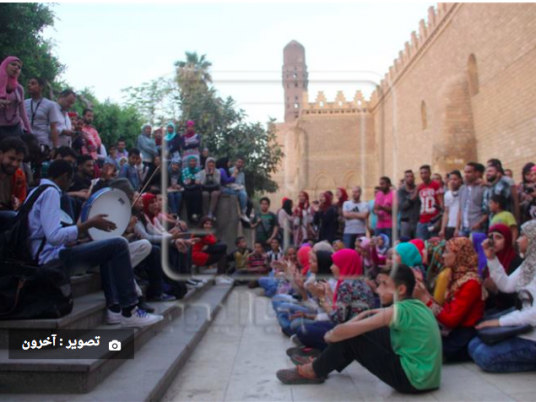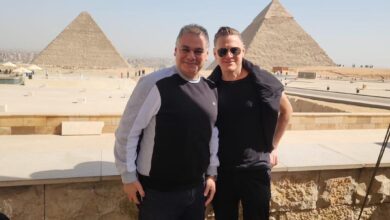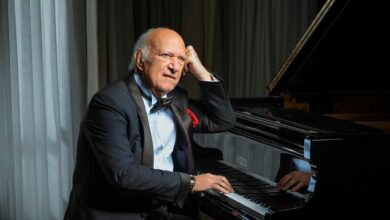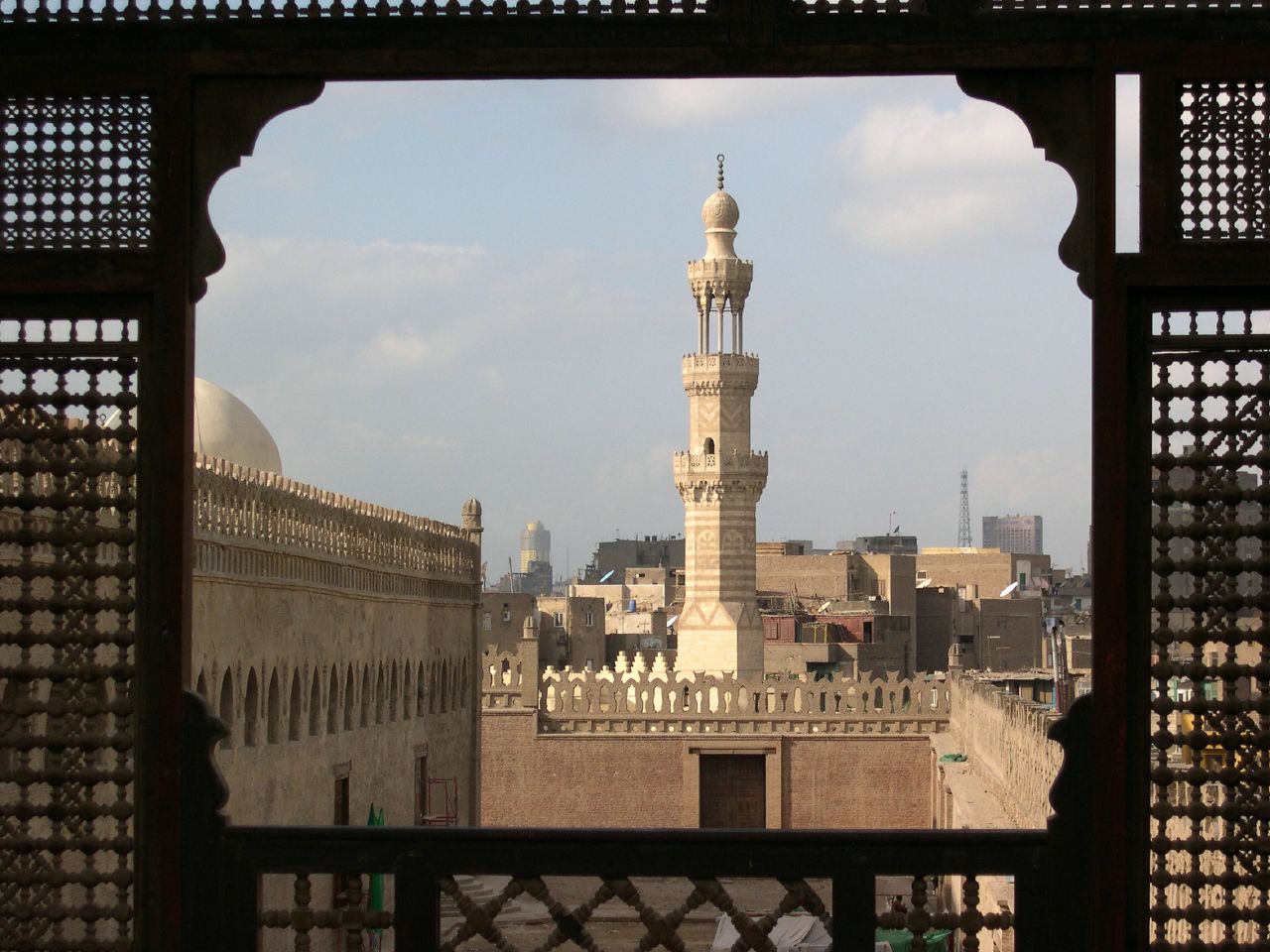
Walking down Al-Moez Street on Thursday, amid the noise of vehicles passing by and people talking as they enjoy the start of their weekends, one can hear the distant sounds of music being played: drums, harmonicas, large horns, guitars and so on. Once inside the old city wall, lights of various colors light up the worn-down walls of Old Cairo and a sense of excitement is almost palpable in the air.
Independently organized by a group of five young people and simply named “Mazzika in Al-Moez Street”, Thursday’s event generated a great deal of buzz on social media platforms following a couple of smaller events organized by the same people.
Organizer, Abdel Rahman Qamar says, “We wanted to organize an event where people could come and play music and let loose. We organized a similar event last Thursday at the Opera House, and it was a success, so we decided to organize one in a larger space. We created the event on Facebook and we were so surprised when the number of people attending went up to 6,800.”
Unlike other musical events, this one did not have a stage or an entrance fee, the music was played by the attendees in the various open spaces in Al-Moez Street, public for everyone to hear. Following the sound of tablas and horns, I arrived at a courtyard that was lit up with neon lights and filled almost to the brim with people of various ages, dancing to a rhythm set by seemingly invisible instruments.
Across the courtyard were huddles of onlookers, forming various circles around the music being played, hiding it from view; the musicians sat on the floor and played, shielded from the outside world by the tight circles formed by the onlookers. Around the huddles were people dancing together, eating ice cream and taking photographs of their memorable weekend.
One onlooker, Mohamed, said, “I was just walking down Al-Moez with my friends and we heard the music and saw that there were people dancing, and it looked really interesting so we decided to go check it out. They were singing songs that were different from the ones usually played around here, so I was interested. A lot of old songs. We really liked the atmosphere so we stayed.”
As the evening progressed, more and more people started to exit the gates of Old Cairo, and soon the sound of music coming from outside the wall grew louder and louder. With the ramparts of the Old City behind them and the busy Cairo street as their audience, the attendees created the same huddles outside the city, to share the music with a bigger audience: Cairo.
Young people carrying their instruments began to follow the sounds coming from outside the wall until there was no more music being played on Al-Moez. Outside the city, there were no neon lights lighting up the walls, and in the dark the music became louder, people were more involved, there was more dancing. Rather than several smaller huddles, there was on big one, with a large group of musicians in the middle.
Qamar continued, “We thought this would be a great way to get people to forget all their stress and have a good time. Especially since this is the exam period for a lot of students and people are probably under a great deal of pressure. We are musicians ourselves and we think music is very important.”
Asma Ali, a student, says, “I really like the atmosphere and the music, but I thought it was a bit disorganized, to be honest. There were no tickets and the music was not prepared well. There was no fixed place for the music to be played and a lot of the time the sounds of the street drowned out the music.
"I think it’s great that people are coming together in this way, but I would have liked a more organized event.”
Hagar al-Beh, another onlooker, said, “I really like the chaos of the whole thing here. There’s something magical about people coming together and playing music on the street. It’s a celebration of Egyptian music and culture, and I like how, unlike most other music events, this one was just the audience. The audience playing and the audience listening. It’s more unified in a way.”
This event is not the last of its kind, according to Qamar.




